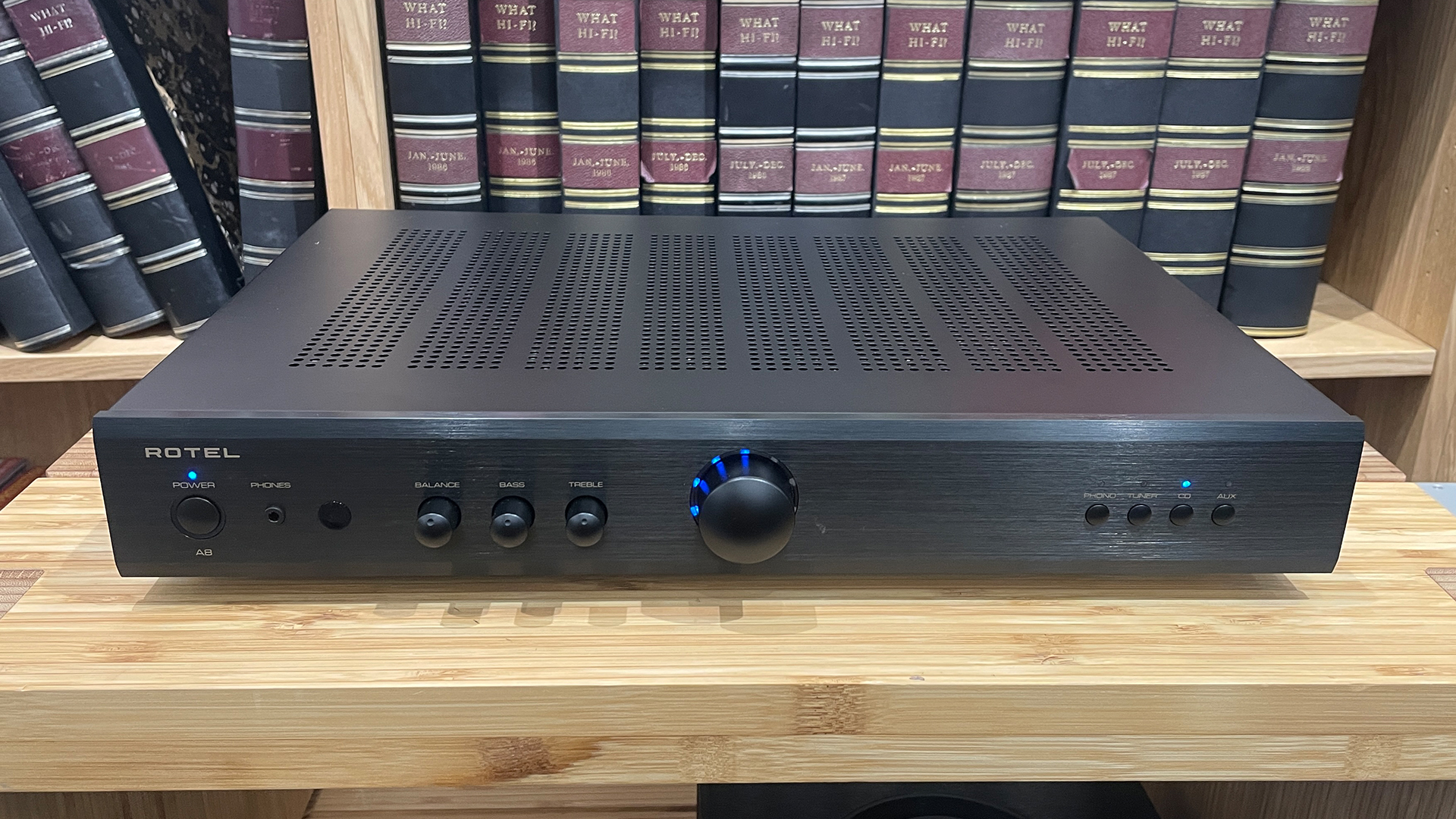What Hi-Fi? Verdict
Rotel’s A8 is an unassuming but hugely capable integrated amplifier that is sure to worry the class leaders
Pros
- +
Clear, controlled and precise presentation
- +
Expressive dynamics and punchy bass
- +
Solid build
Cons
- -
No digital inputs
Why you can trust What Hi-Fi?
We have a strong sense of déjà vu when we unpack Rotel’s new A8 integrated stereo amplifier. It reminds us of the company’s excellent, Award-winning budget models from the early 2000s. Sure, there is more sophisticated switching here along with flashes of colour thanks to the use of LED lighting around the central volume control, but in essence, the A8 looks to be packing the same DNA.
Just to be clear, that’s a good thing.
Build & design
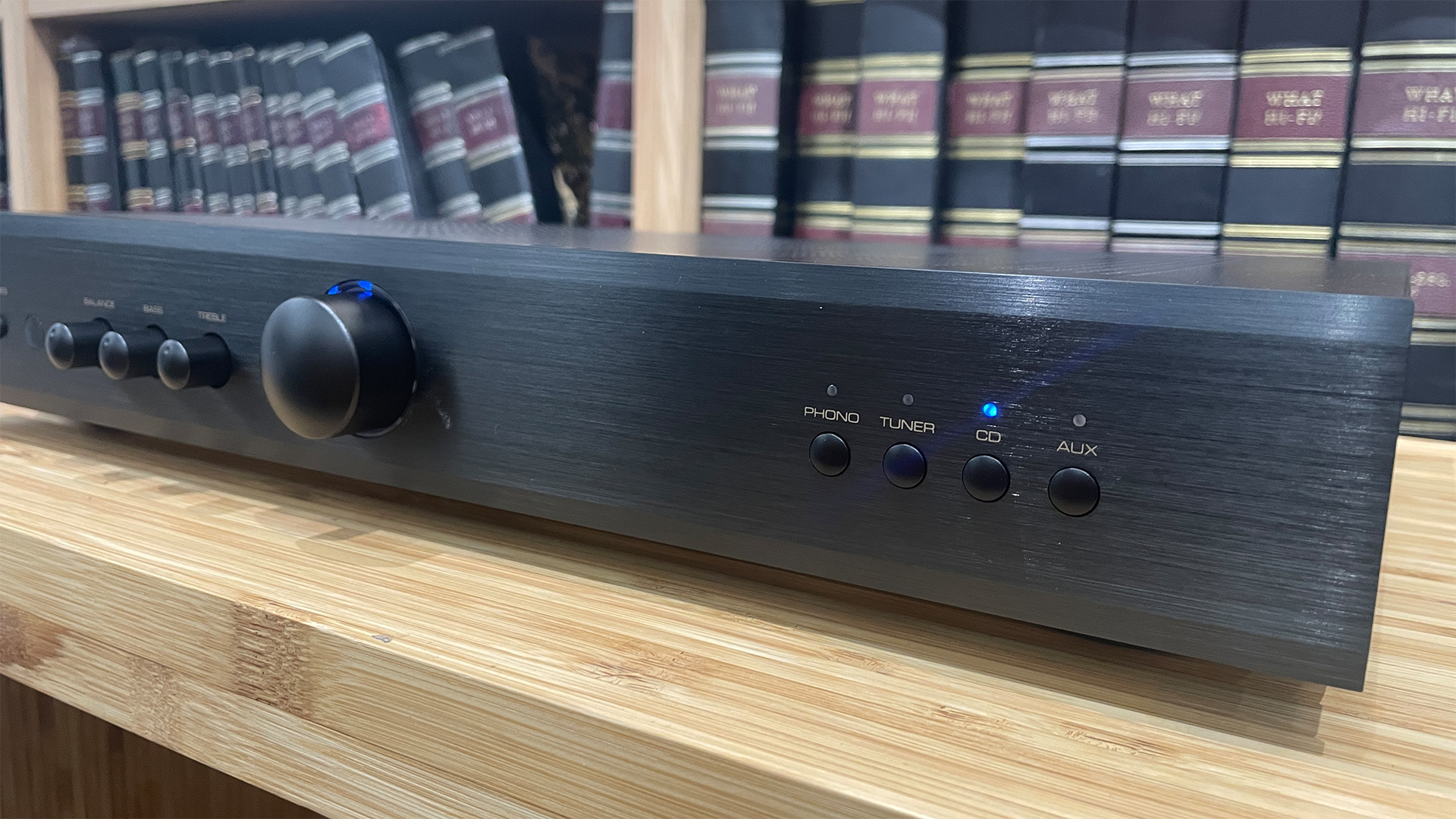
This is not an amplifier to show off about. Its appearance is simple and unassuming. It is a slim unit that stands just over 7cm in height and the styling is best described as functional. The A8 isn’t trying to be a style icon; it is a tool to do a job, nothing more, and we like that focused approach, particularly at this level where budgets are tight.
Pleasingly, this is a solidly made unit where every switch and control feels properly engineered, and the casework is well-finished and made with care. Look inside and you will find a sensibly specified power supply, neatly laid-out circuitry and plenty of evidence of good quality components.
Features
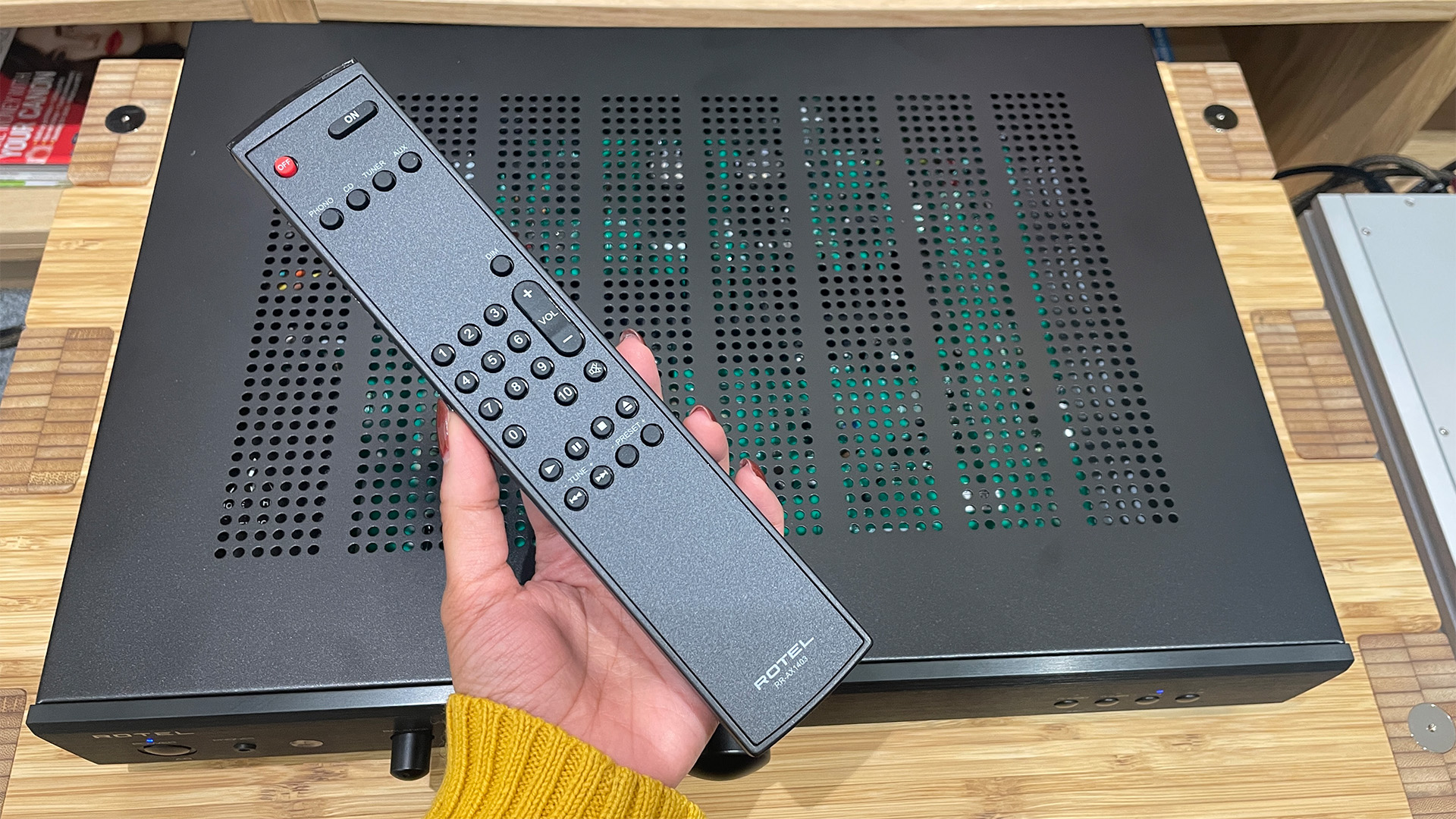
The Rotel A8 isn’t packed with features and even misses out on the digital inputs and Bluetooth connectivity that is relatively common at this price level. Are those big losses? Our answer would have to be no.
Typically, the digital modules used in budget amplifiers tend to be box-ticking exercises that don’t tend to sound great. We haven’t come across a situation where we prefer one of those to the DAC module fitted to a half-decent budget streamer, CD player or laptop for that matter. Bluetooth connectivity, however, is always useful, so its omission is a bit of a negative. But the lack of it isn’t a deal breaker for us.
Elsewhere, the Rotel has the basics covered with a moving magnet phono input for your record player and three single-ended line-level inputs for the rest of your sources. In most cases, this array of connections is likely to be enough for all but those with really complex stereo systems. There is a 3.5mm headphone output on the front panel too.
Compatibility
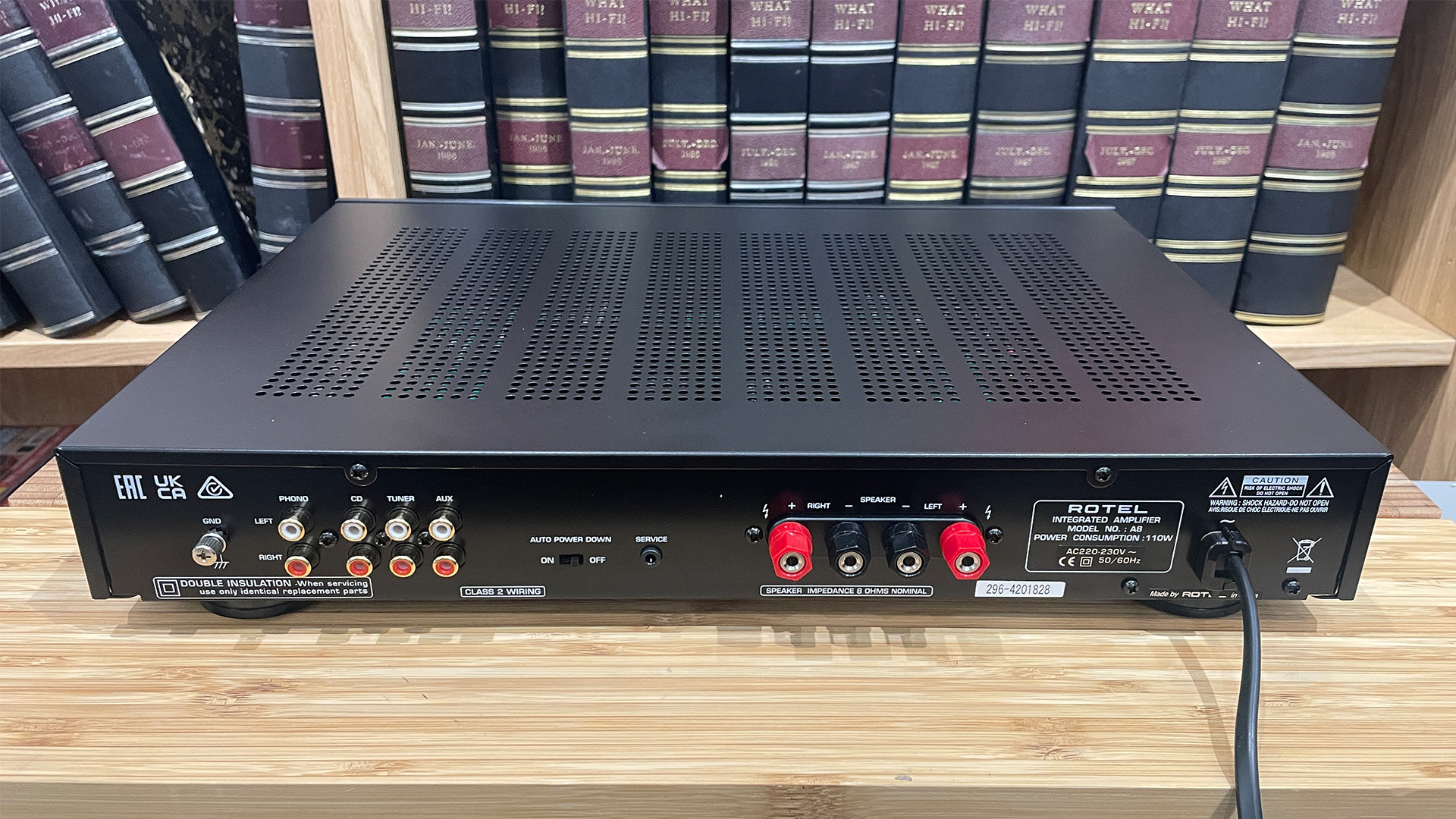
Even Rotel doesn’t claim the A8 to be a powerhouse; it has a modest claimed output of 30 watts per channel into an 8 ohm load that rises only slightly to 40 watts per side as impedance halves. That’s notably short of a class leader like Marantz’s PM6007, which claims 45 watts per channel rising to 60 watts under the same conditions.
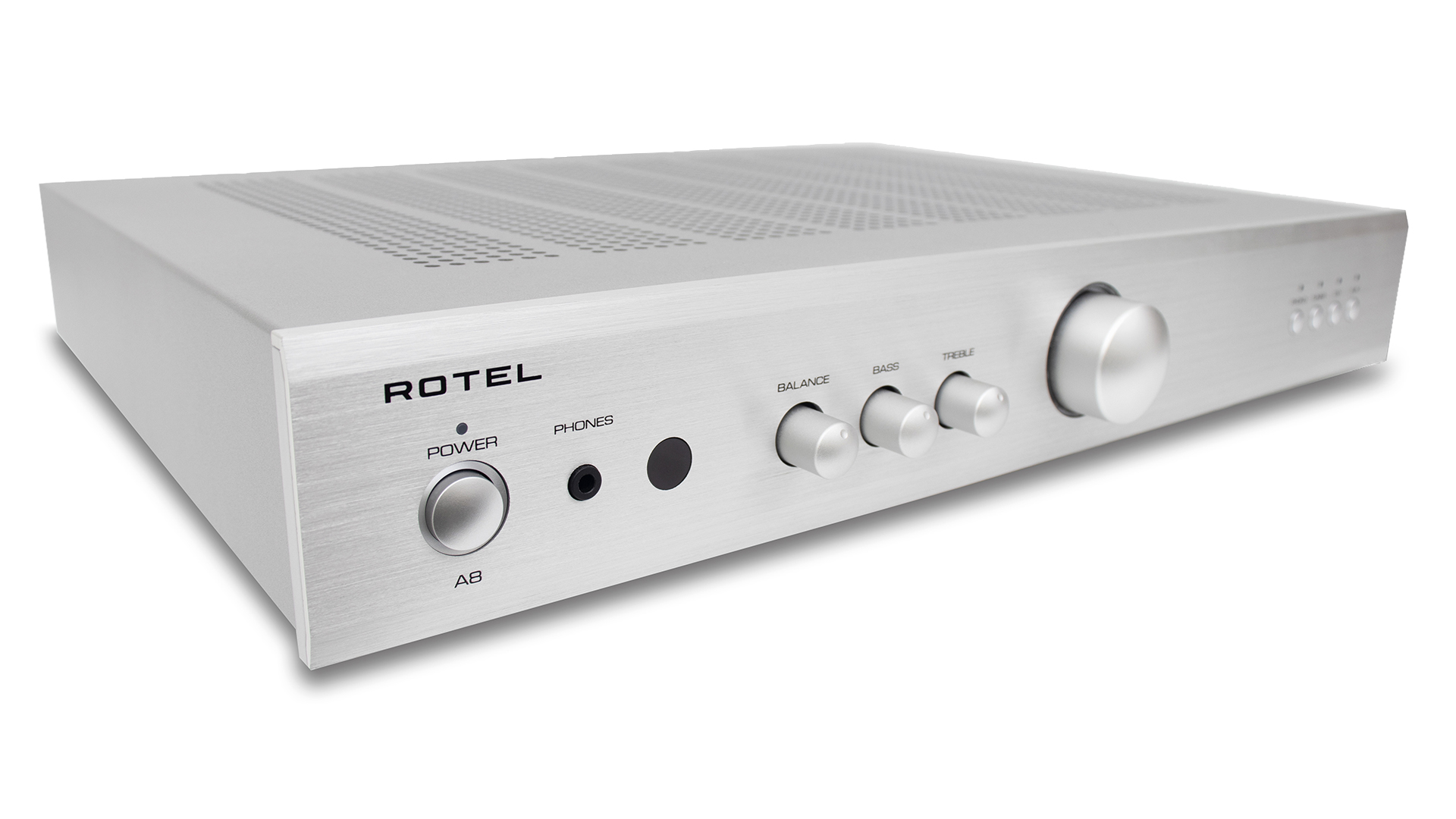
Type Integrated
Power 30W per channel into 8 ohms
Phono stage? Yes (MM)
Inputs Line level x 3
Outputs N/A
Bluetooth? No
Headphone output? Yes (3.5mm)
Dimensions (hwd) 73 x 430 x 347mm
Weight 5.8kg
On paper that suggests the A8 might need extra care in speaker partnering, but in use it proves surprisingly capable, driving everything from a pair of budget Wharfedale Diamond 12.1 standmounts to more premium options such as KEF’s LS50 Meta without issue. The more time we spend with this little integrated the more it becomes clear that this isn’t an amplifier that shouts about its talents, more one that goes about its job without drawing undue attention.
The natural sources for an amplifier at this level are the likes of the Rega Planar 1 record player, Cambridge Audio MXN10 music streamer or Marantz’s CD6007 CD player. It works well with any of these, but also has enough stretch in its abilities to accommodate more ambitious alternatives such as a Rega Planar 3/Nd3 turntable or Arcam CD5 CD player without issue. Much the same applies to speakers. While the A8 will drive the likes of Wharfedale’s Diamonds well it doesn’t feel like a weak link even when we plug it into more premium alternatives such as KEF’s mighty LS50 Meta. If you have this amplifier in a budget set-up, it will probably be the last thing you will need to upgrade.
Sound
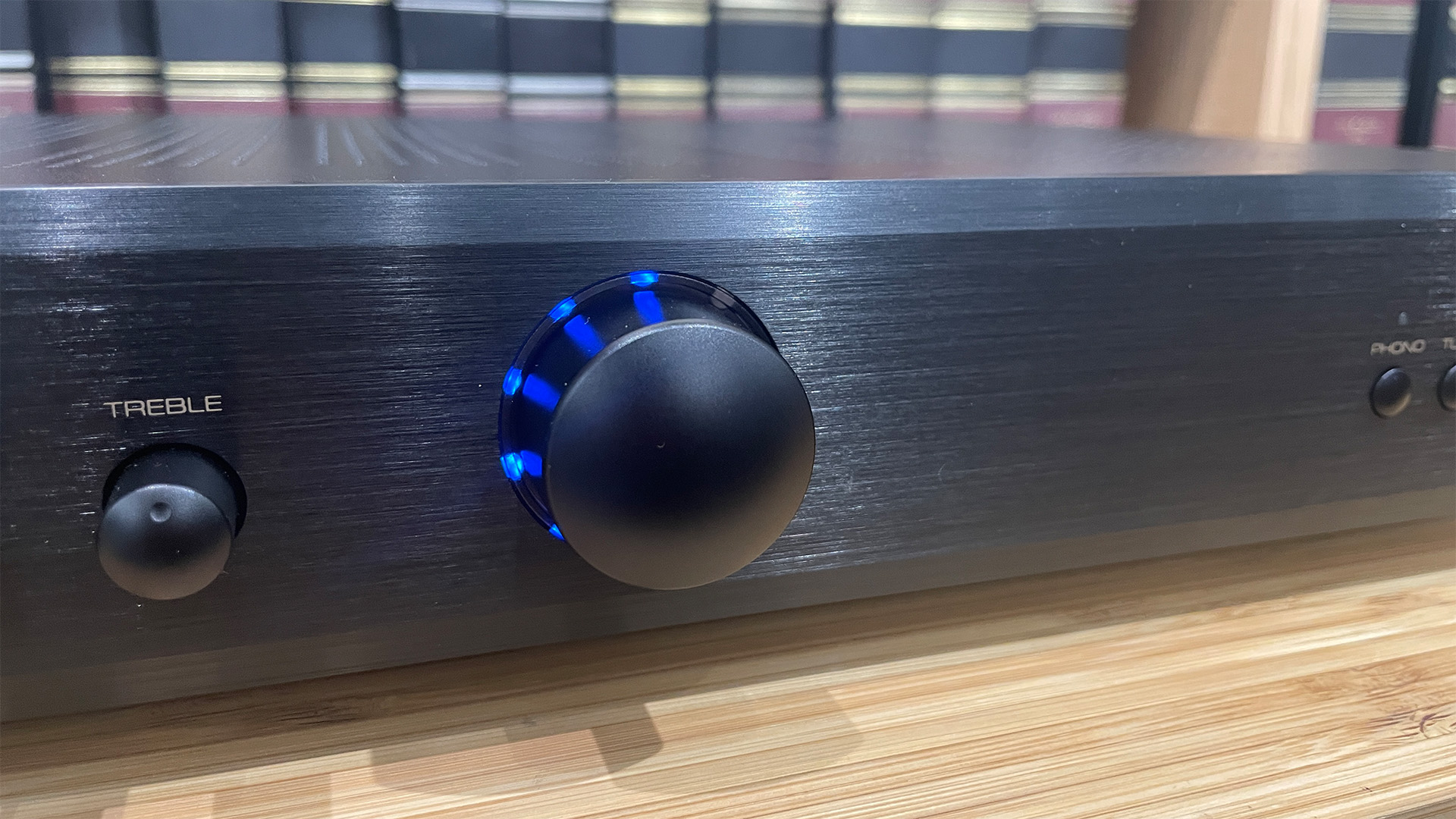
Straight from the box, this Rotel sounds a little restrained and mechanical. Given a few days of use, its presentation becomes more natural, losing the initial traces of hardness and gaining a good dose of fluidity. After that point, this is an amplifier that just fades into the background letting the recording and the other components in the system step into the limelight.
As we listen to Barrington Levy’s You Say Me Say the A8 handles the song’s bassline with considerable skill, delivering it with impressive grip and punch. The song’s easygoing momentum is communicated well with a fine sense of drive and authority. This integrated is surefooted with rhythms and unusually expressive as far as dynamics are concerned. Levy’s voice comes through with character and charm intact. While the rival Marantz PM6007 delivers the recording in a more spacious and more fluid manner, particularly through the midrange, it is the Rotel that comes across as the more authentic performer thanks to its pleasing resolution and greater insight into the subtleties.
Switching to Górecki’s Symphony No.3 shows the A8 to have a firm handle on rendering large-scale dynamic shifts and keeping everything under tight control even when the music becomes demanding. It sounds organised and controlled even at points where most rivals struggle to stay coherent. There is a calmness about this amplifier’s delivery with difficult music that is hard to better without spending much more.
Stereo imaging is fine. There is a good sense of focus and a decent amount of stability, though its Marantz rival does render a more expansive soundstage. Still, the Rotel counters with superior definition, particularly at low frequencies where it is considerably more articulate and textured than any alternative we have tested.
We try the Rotel’s moving magnet phono stage and find it perfectly acceptable. As is typical at this level there is a drop off in clarity and transparency compared to the line level inputs, but the A8’s unassuming but hugely likeable character still shines through. As we listen to Mary J Blige’s No More Drama set, it is easy to appreciate the amplifier’s musically engaging yet still composed nature.
Verdict
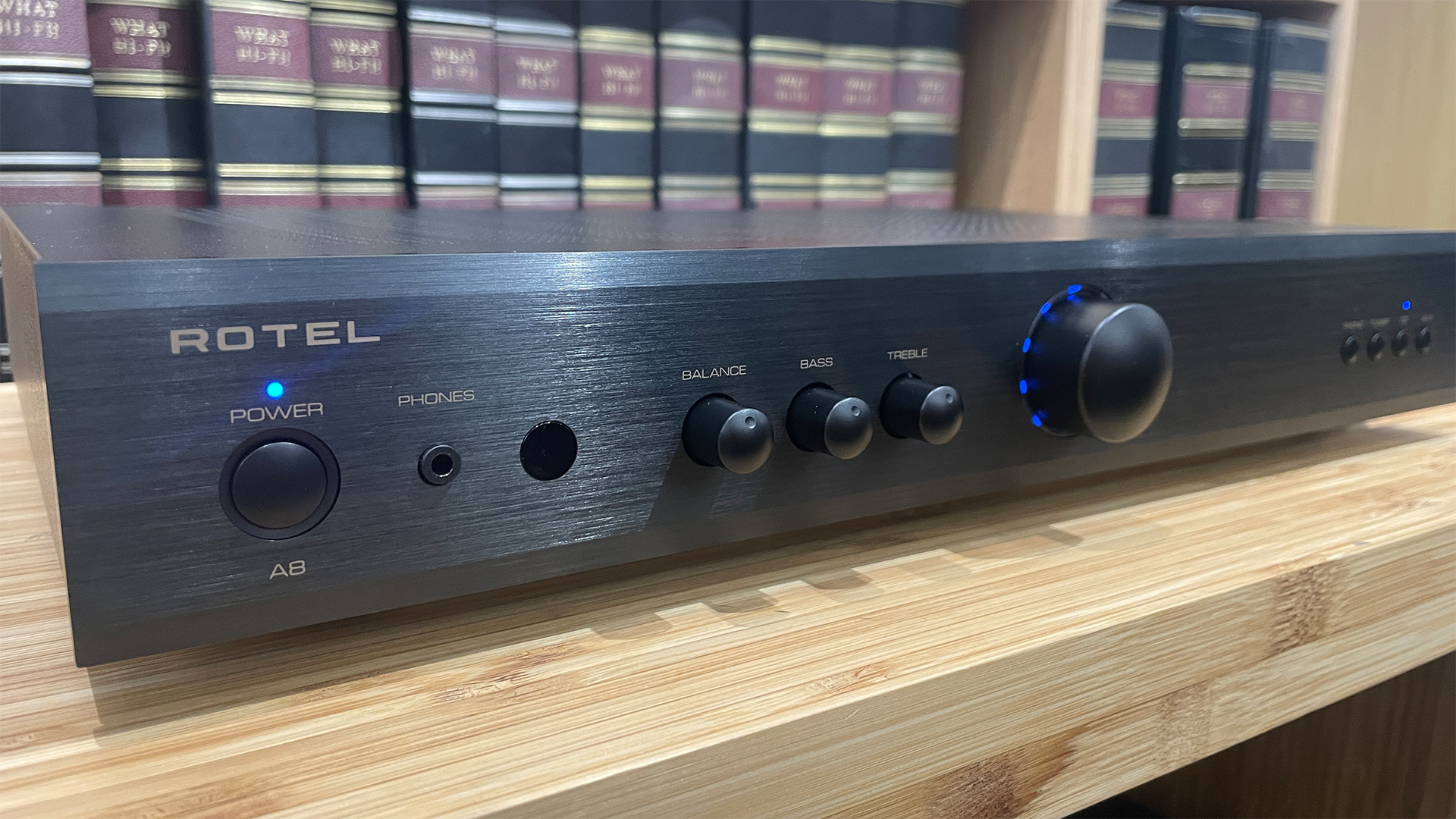
The Rotel A8 is a fuss-free, well-built product that sets an enviable standard for sound quality at this level. While there is tough competition from the likes of Marantz’s long-running PM6007 and Cambridge Audio’s AXA35, the A8’s understated charms have us hooked. If you are looking for a stand-out budget amplifier, ignore this one at your peril.
First reviewed: October 2024. Review updated: November 2024.
SCORES
- Sound 5
- Build 5
- Features 4
MORE:
Read our review of the Marantz PM6007
Also consider the Cambridge Audio AXA35
Rotel A8 vs Marantz PM6007: which budget stereo amplifier is best for you?
Best stereo amplifiers: the 8 best integrated amps chosen by our experts
What Hi-Fi?, founded in 1976, is the world's leading independent guide to buying and owning hi-fi and home entertainment products. Our comprehensive tests help you buy the very best for your money, with our advice sections giving you step-by-step information on how to get even more from your music and movies. Everything is tested by our dedicated team of in-house reviewers in our custom-built test rooms in London, Reading and Bath. Our coveted five-star rating and Awards are recognised all over the world as the ultimate seal of approval, so you can buy with absolute confidence.
-
podknocker An amplifier with no digital inputs in 2024?Reply
Never mind, it's underpowered and has a phono input for your 'modern' turntable. -
feliso08 I had a Rotel in 2010, I bought it on the recommendation of WATHIFI, after a month I sold it and bought a Marantz, the Rotel played relatively well, but only technically, it had no soul.Reply -
pattakosn Solid stereo amps of a few tens of watts with 4 RCA inputs:Reply
They have been making exact the same product for decades.
No dac
No bt
No wifi/la
Similar (higher?) priceAs much as I like Rotel I feel they are milking their clients.
I would have expected any honest review to criticize these points -
Gray Slight lack of enthusiasm from the posters above 😐Reply
If you can't beat 'em, join 'em:
If you're going to bother with a headphone socket Rotel, make it a superior quarter inch rather than a toy-like, inferior 3.5mm (can't add too much more cost). -
podknocker I owned a Rotel RCD02 and RA02 in silver many years ago and they were easily the best sounding kit I ever bought. Modern day versions would be nice, with new and useful features etc. The new A8 has bargain basement features, but not a bargain basement price. Even if it sounds decent, the lack of sockets and tech is going to be very limiting. I don't see the point in such a basic design. I am a fan of blue LEDs however!Reply -
manicm To all those complaining and talking nonsense, this is a 400 quid amplifier, not a 4000 one. And, yes, it's a vastly superior amplifier to the 60w WiiiM Amp. You can't have it all at this price.Reply -
TooOftenDrunk Reply
Certainly looks like they are milking the UK customers given this is £399 and €399 which would convert to about £335.00 at todays rate. much better value products available around £400.00pattakosn said:Solid stereo amps of a few tens of watts with 4 RCA inputs:
They have been making exact the same product for decades.
No dac
No bt
No wifi/la
Similar (higher?) priceAs much as I like Rotel I feel they are milking their clients.
I would have expected any honest review to criticize these points -
gasolin Reply
Do you know what kiss is ?pattakosn said:Solid stereo amps of a few tens of watts with 4 RCA inputs:
They have been making exact the same product for decades.
No dac
No bt
No wifi/la
Similar (higher?) priceAs much as I like Rotel I feel they are milking their clients.
I would have expected any honest review to criticize these points
That is what this Rotel A8 amp is
